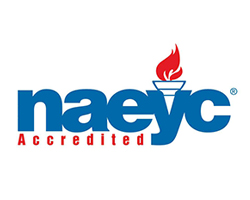
Considering the ever growing number of children who diagnosed with allergies, it is important that every child care class stays prepared for anything and everything. Allergies can be minor or life threatening to the child. Some kids can be around their allergen and just not ingest it or touch it. However, others cannot even be in the same room as the allergen. Addressing all of the needs makes it tough to monitor early childhood education classrooms and the safety of the children. Knowledge in the classroom is the best defense against all food-borne and other allergies that will affect the child, and how it affects the child, as suggested by the NAEYC.
Knowing the Difference
While many children have food allergies, there are also students who will have food intolerances. These two are very similar, as they are both negative reactions to certain foods. However, there is one difference. A food allergy is a response from the immune system reacting to the food, which could lead to grave consequences. Food intolerance is a reaction to the food that does not involve the immune system and is less severe. Many times, there are particular foods that children with allergies need to avoid altogether. With intolerance, it may be manageable in lower doses (though sometimes full avoidance is necessary).
Common Food Allergies include:
- Milk
- Eggs
- Peanuts
- Soybeans
- Tree nuts
- Wheat
- Fish
- Shellfish
These are the common food allergies and intolerances that many early childhood education teachers need to learn to handle and understand. It can quickly become a scary situation by the severity of the reactions. Consider the reactions such as itching, swelling, nausea, and the worst: anaphylactic shock. These responses are things that all educators need to stay aware of when they have a child with allergies in their schools.
What We Can Do As Educators
The best thing we can do is create an environment where knowledge is critical. With the help of parents, pediatricians, and school nurses, we can ensure the child is in a safe environment at all times. An allergy list is posted in all of our classrooms so that all staff are aware of the allergies of their students. Also, we do not permit any nut products in our center as we have several children with severe nut allergies. We keep individual health care plans on file for children with allergies or other health conditions in order to make sure that we are meeting each child’s health needs.
Please keep in mind that all food brought to the center to share with a group must be commercially prepared with an ingredients label attached or whole fruit. All special snacks must be planned in advance and brought to the front office for approval.
Considering that knowing the allergy is half the battle, we can also help make sure that the student gets the nutrients they need due to a lack of nutrients. For example, those with a milk allergy or intolerance is missing calcium. That is why families should work together with their pediatrician to develop an individual health care plan.
For the most part, in a small center, many early childhood education teachers will know of the allergy and the symptoms. This way, we keep better eyes on your child so that we can treat them immediately when necessary. It will also help us to explain to the rest of the children why there are special meals for certain individuals, which will help them learn and accept differences. Allergies are a setback in many eyes, but they are a learning tool for acceptance and are easily looked after when you are in the right hands.





